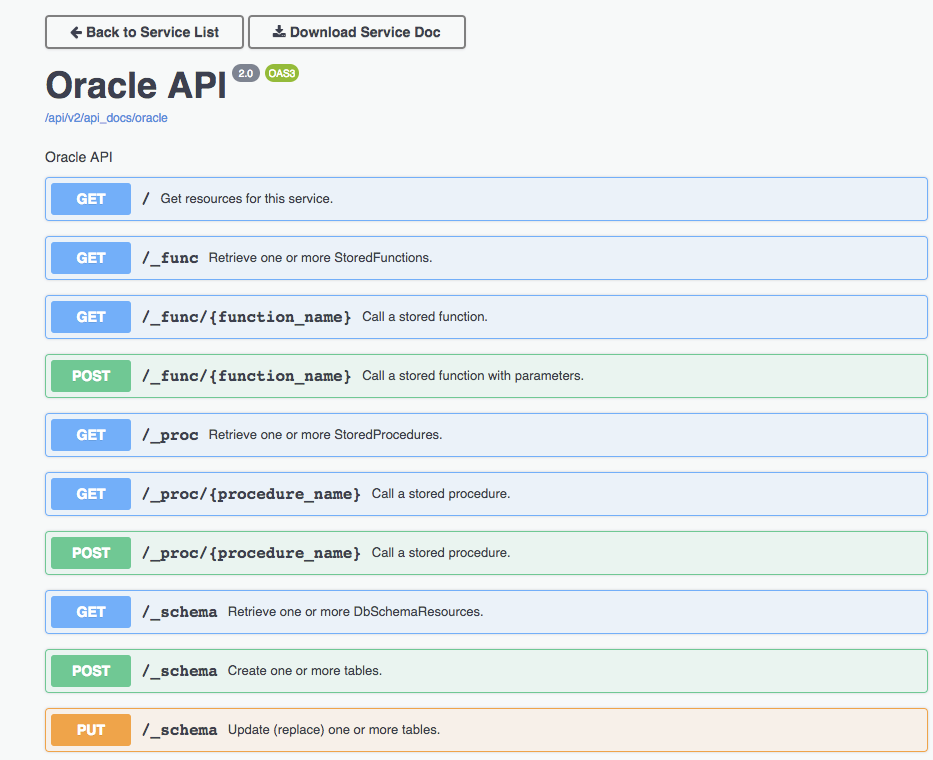Editor’s Choice IronMQ: Overview and Review
Companies deal with a lot of data. Between mobile apps, software, and hardware, data is constantly created. The problem is that it doesn’t stay in one place.
Data moves freely between platforms as they communicate with each other. For example, when a customer submits their email to a company through an online form it doesn’t stay in the form. The information moves to various software for marketing, sales, mail, and more.
But what happens to the data when an application crashes or timeouts? Data gets lost and never delivered unless you have a message queuing service like IronMQ, which is why it’s our our Editor’s Choice platform. Read on to learn more.

Why You Need Message Queuing
When you’re a company that deals with a lot of data, you can’t afford problems. And there are a lot of problems that can happen. Data can get lost or stuck due to:
- Application crashes
- Traffic spikes
- Errors in code
- And more.
Messaging queuing helps with all of this by creating a data pipeline. Basically, whenever you submit data, instead of going directly to its destination, it goes into a queue. This queue then holds and protects the data until the final destination receives it.
If there are no problems, data transfers instantly. However, if the system overloads or something goes wrong, the data remains safe and ready for transfer until it can arrive safely. Even in a worst-case scenario—no lost data.
There are many reasons to use a message queuing service like IronMQ.
- Data redundancy
- Faster web application load times
- Data batching efficiency
- Delayed data sending (asynchronous programming)
- Software decoupling
- Transaction order efficiency
- Data resiliency
When it’s vital to protect your data and ensure it always makes it to its final destination, then you need a message queuing system. It improves performance of your web applications. And it makes sure you can process billions of bytes of data without any trouble.
Just make sure that the queuing service you choose can handle your data load and communicate with all of your applications. Otherwise, your data might not be as protected as you think.
About IronMQ
IronMQ by Iron.io is an industrial strength message queuing solution. It’s designed for the modern cloud. It offers advanced features and flexible deployment via RESTful APIs (Representation State Transfer). This means that IronMQ can communicate between a web-based client and server.
IronMQ also works with client libraries for all major coding languages. Making it easy to use and highly available without needing to write extra code.

The IronMQ solution supports:
- Pull queues
- Push queues
- Long pulling queue methods
- Error queues
- Queuing alerts
Here’s everything you need to know on the difference between the different types of queues.
Many top companies use IronMQ including CNN, Turner, Thrillist, Bleacher Report, Untappd, Phillips, and Twitter. They appreciate the 24/7 customer service, reliable message queuing, and lightning fast message queue. Thousands of companies and users have tested the software and trillions of messages.
There’s a reason why IronMQ is our Editor’s Choice message queuing solution. It’s especially a great choice for healthcare and government agencies.
Pros of IronMQ:
- Developer friendly API that supports many different platforms in the cloud
- Persistent high performance with billions of messages a month
- Advanced messaging security via HTTPS, SSL, and OAuth
- No setup
- No maintenance
Cons of IronMQ:
- The user interface is a little challenging for first-time users.
- Lacks some integrations that would be useful.
IronMQ Features and Benefits
IronMQ users enjoy access to an extensive list of features and benefits. All helping cloud computing companies experience better reliability and scalability. Users can also expect faster speed to market, less data complexity, and improved performance.
10 Benefits to IronMQ
How does IronMQ make all this possible? It all breaks down to the benefits of the solution.
- Redundancy and Persistence. Queues help with redundancy by storing the data safely until delivery. Even if something fails, message queues complete the transaction.
- Traffic Spikes. You don’t always know how much traffic an online application will get. When traffic spikes, queuing keeps all data ready for processing even if it takes longer than usual.
- Improved Web Application Load Time. IronMQ’s messaging queue keeps data in a background thread. This means users can finish their request immediately even if the message doesn’t go through for a while.
- Data Batching for Efficiency. It’s more efficient to push through 100 records at a time than one at a time.
- Asynchronous Messaging. Messages and responses do not need to happen at the same time.
- Pushing and Pulling Support. When retrieving new messages/data, pushing and pull support means the message gets through quicker.
- Transaction Ordering. If 1,000 people place an order at the same time, transaction ordering guarantees data goes through on a first-come, first-serve basis.
- Improved Scalability. You can disconnect applications to scale them independently based on your needs.
- Increased Resiliency. By breaking down your applications into queues, you create more resiliency.
- Data Monitoring. IronMQ allows you to monitor all items in your queue. You can see how many items are waiting, the rate of processing and other stats.
As for the features that made IronMQ our Editor’s Choice for messaging queueing. There are a few features in particular that stand out.
Instant and Elastic Message Queueing
Once you connect IronMQ to its endpoints, you have instant message queuing access. Immediately, you have unlimited queuing ability. This includes on-demand service with one-time first-in-first-out (FIFO) delivery. You also have message persistence and cloud-optimized performance.
Pull, Push, and Long Polling Support
IronMQ supports both pushing and pulling queues. This means when you’re trying to transfer data, you get the best of both worlds. In the push method, the message is immediately delivered to the final point. In the pull method, data transfer occurs at intervals.
There’s also long polling. This means IronMQ will wait until a message is available to send a response, which eliminates empty responses.
Other support features include:
- Error queues
- Message alerts
- Message triggers
- And more.
Supports All Major Programming Languages
IronMQ is accessible through REST API call and client libraries that support all major languages. It also comes with easy-to-read documentation for understanding each language. Built with MQ standards in mind for maximum flexibility.
Flexible Deployment Options
There are also many flexible deployment options, which means you can host it on shared infrastructure or dedicated hardware. This is valuable for companies with a range of data requirements. Though it’s particularly well-suited to cloud environments.

In particular, it’s important to note that IronMQ can run in-house. This is most valuable when compliance and security is paramount. For example, in government agencies and healthcare environments.
Automated Failover
IronMQ runs on multiple clouds and availability zones. This means that users with critical messaging needs don’t have to worry about outages. They can automatically use alternative zones in case of failure without changing the code.
IronMQ Customer Reviews
Users appear to really enjoy using IronMQ. Of the 11 reviews on Capterra, the average rating is 4.5 stars out of 5. They like its flexibility, scalability, and elasticity. Users also believe that it’s fast and robust.
Jose R., gives IronMQ 5 stars, stating that it’s “very easy to set up projects, queues, subscribers.” He also says that it’s “good value for money.” As for a feature he really liked,
"The availability of some Docker images that mimicked the authentication and queue behavior for testing locally. We've used extensively in our docker-compose stacks."
As for Joshua M., he feels that the “documentation is straight forward.” He goes onto say,
"It’s nice that they have sdks / plugins for major frameworks like laravel to work with the native queue system."
Ryan B. sees IronMQ as the “right balance of functionality, ease-of-use, and cost.” He continues, saying,
"We process millions of jobs a month and needed a way to scale outside of running our own Sidekiq instance. Worker and Message Queue were the team that solved it for us."
Top IronMQ Competitors
IronMQ might be our Editor’s Choice solution for message queuing, but that doesn’t mean it’s the only option. There are quite a few similar products in the marketplace. Here are a few of the top IronMQ competitors.
Amazon SQS
Amazon’s SQS (Simple Queue Service) is a messaging queue solution that handles work flows between systems. It’s a fully-managed service that helps companies decouple systems and scale services. The key to Amazon SQS is that it leverages the AWS cloud.
There is no upfront cost to use Amazon SQS. There’s also no buildout or maintenance required. You can install and configure quickly. It handles:
- Applications decoupling
- Any volume of data
- Server-side encryption (SSE)
RabbitMQ
RabbitMQ helps applications send and receive messages. It’s used in more than 35,000 deployments worldwide. It’s easy to deploy on premise and in the cloud and works across languages. You can use it with Java, .NET, PHP, Python, JavaScript, Ruby, Go, and more.
It also supports asynchronous messaging in many ways. It supports:
- Multiple messaging protocols
- Message queueing
- Delivery acknowledgement
- Flexible queue routing
- Multiple exchange types
Apache RocketMQ
Apache RocketMQ is a messaging and streaming data platform. Its open source format means it’s highly flexible. You can make it work for your company and needs. It has a trillion-level message capacity. And has a very low latency.
Key features of RocketMQ include:
- Batch transferring
- Tracking and auditing features
- Open distributed messaging
IronMQ Is Feature Rich
IronMQ is a robust and feature-rich messaging queue solution. It helps companies get the right information to the right people at the right time.
With IronMQ, companies have a reliable way to communicate between systems. Message queues keep all data secure, and available for improved performance in the cloud and on-premise. And because it works with the language of your choice, the solution is as flexible as you need.
Discover more about IronMQ and why it’s our Editor’s Choice today.
About DataWarehouse4u.info
For more helpful and informative content about the latest technology, tools, engines, and more, check out Datawarehouse4u.info. We regularly post reviews, advice, and tutorials on the technology you want to learn more about.
Don’t miss out on the latest tech info!
About the author:
Kelly Vo is a full-time freelance writer. She specializes in digital marketing, B2B, and technology. Kelly is both a content creation and brand development expert. She prides herself in helping businesses develop their authentic voice.
Data Warehouse Info
Recently added reviews
Try Xplenty
The ELT Tool Built for the Cloud
The ELT Tool Built for the Cloud
Unlimited Connectors | Unlimited Pipelines | 14 Day Free Trial
no thanks



















